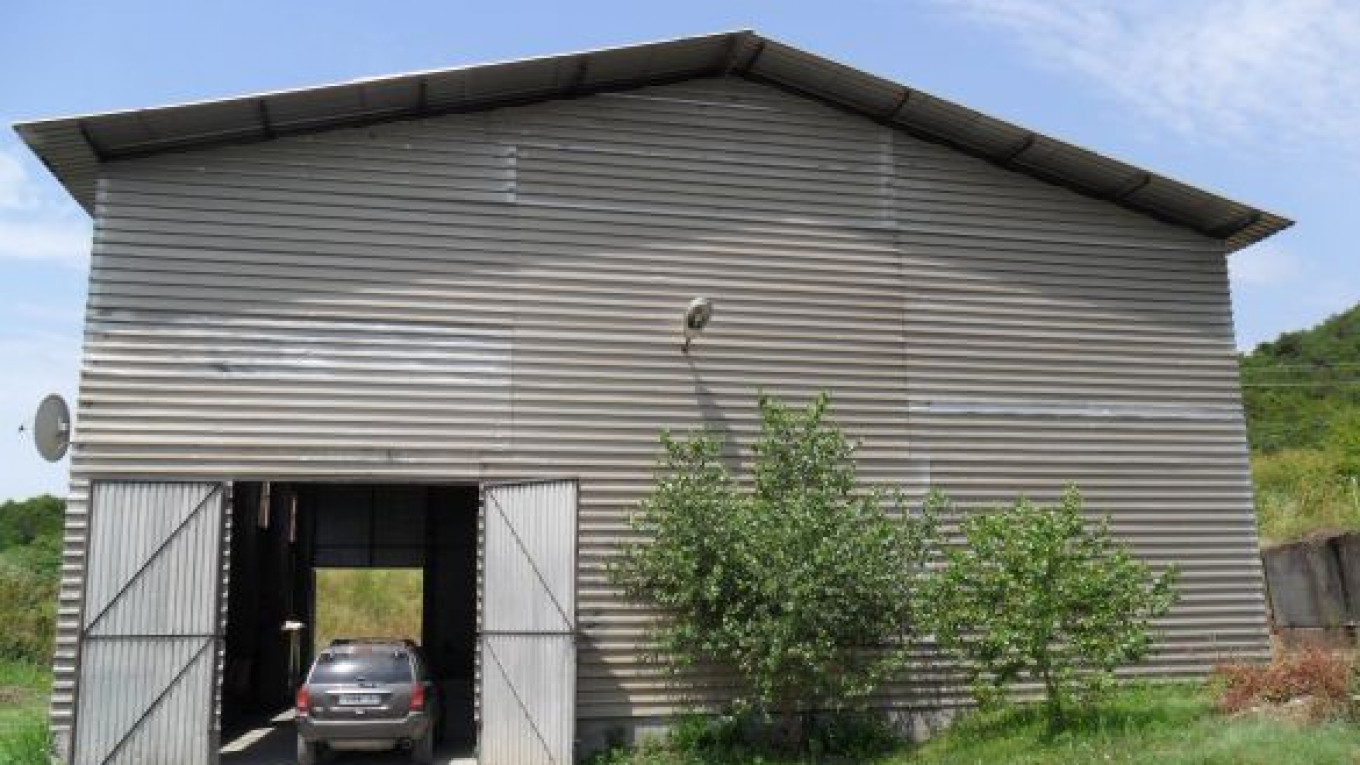Editor's note: This is part of an occasional series marking 20 years after the Soviet collapse.
The trickling of wine into barrels at Mikheil Natsvlishvili's farm and vineyard in Georgia has lately been competing with another liquid sound — the churning of water through turbines.
The roar of twin torrents grates on the ear at the Moscow end of the line as the man eagerly holds up his cell phone near the small hydropower plant he owns.
Trained as an engineer, Natsvlishvili never went into this profession, working instead at a factory and eventually on his own farm. Now, his Soviet education is paying off — but in a way the Communists never intended.
Natsvlishvili, 42, finished constructing the plant on his land in the town of Napareuli in 2008 with the help of the United States Agency for International Development as part of an effort to capitalize on the country's abundant hydropower resources and promote private enterprise.
"There are lots of hills here. In many regions they would be able to do this," Natsvlishvili said, adding that some Georgians to this day do not have electric lights.
The existing electricity supply is sometimes patchy, but power outages are fewer today in Natsvlishvili's Khakheti region, a change the entrepreneur attributes to the increased activity of hydropower plants such as his own. Its capacity runs up to 2 megawatts — a minuscule fraction of Georgia's total of 1,800 megawatts.
Natsvlishvili sells his electricity to the Energy System Commercial Operator, a government-owned energy distribution company, and he said some of the power travels to consumers as far away as Tbilisi, the country's capital located 90 kilometers to the west.
The idea for the power plant came from an empty canal on Natsvlishvili's land, the only remnant of a windmill that had been there previously. Seeing it was possible to channel water through the area from the nearby Lopota River, the entrepreneur began building the power station in 2000 at his own expense.
His engineering education came in handy, but the Rose Revolution forced him to halt the work because the political upheaval made construction supplies scarce and funding short.
"In the beginning, we did it ourselves, but it didn't turn out that well," Natsvlishvili said.
It was the intervention by USAID that eventually reinvigorated the project as part of the agency's Rural Energy Program. USAID contracted the nonprofit organization Winrock to aid the planning, financing and construction of this and six other small hydropower plants in the area, with the primary goal being to promote private enterprise.
"That's number one, to get the government out of the business of building and get it into the private sector, to show that it can be accomplished … by Georgian entrepreneurs," said Jake Delphia, a USAID consultant.
Winrock served as an intermediary between the entrepreneur and the Bank of Georgia, enabling Natsvlishvili to take out a five-year, $330,000 loan in 2008 with a 14 percent interest rate.
The model of a local generator selling to local consumers, such as at Natsvlishvili's plant, "is something the banks really like, and is something that can be repeated over and over in the country," said Delphia, chief of the USAID-funded Hydropower Investment Promotion Project.
"There are literally hundreds of potential micro [hydropower] sites" in Georgia, he added.
In addition to the loan, Natsvlishvili received a $150,000 grant from the Georgian government.
Eventually built at a total cost of $1.2 million, or 2 million lari, the plant has generated enough money for the entrepreneur to meet his loan payments so far, he said.
On average, he makes 5 to 6 tetri (3 to 4 cents) per kilowatt hour, meaning that he can earn up to $80 an hour when the plant is operating at full capacity.
With his energy business, Natsvlishvili contributes to Georgia's ambitions to increase electricity exports to surrounding countries by tapping its substantial hydropower potential. The nation exported a record 1.3 billion kilowatt hours of electricity last year, and the government hopes to attract up to $3.5 billion in investment for new plants over the next three to four years.
Just as important for Natsvlishvili as electricity is the free irrigation that his plant provides for the area's agribusiness, he said. After flowing through the powerhouse, the water goes on to irrigate farmland belonging to Natsvlishvili — who grows crops including wheat, corn and wine grapes — and other residents before flowing into the Alazani River.
The irrigation only became possible after the plant began operating. "Before, there wasn't any water," he said.
Natsvlishvili continues to make wine, but now his main source of income is the hydropower station — and he is looking to improve it, he said.
The plan is to install filters to spare him the need to clear debris that seasonal flooding brings in. Occasionally, the debris force the entrepreneur to shut down the plant, but the filters would make the business work without a pause, he said.
A Message from The Moscow Times:
Dear readers,
We are facing unprecedented challenges. Russia's Prosecutor General's Office has designated The Moscow Times as an "undesirable" organization, criminalizing our work and putting our staff at risk of prosecution. This follows our earlier unjust labeling as a "foreign agent."
These actions are direct attempts to silence independent journalism in Russia. The authorities claim our work "discredits the decisions of the Russian leadership." We see things differently: we strive to provide accurate, unbiased reporting on Russia.
We, the journalists of The Moscow Times, refuse to be silenced. But to continue our work, we need your help.
Your support, no matter how small, makes a world of difference. If you can, please support us monthly starting from just $2. It's quick to set up, and every contribution makes a significant impact.
By supporting The Moscow Times, you're defending open, independent journalism in the face of repression. Thank you for standing with us.
Remind me later.






